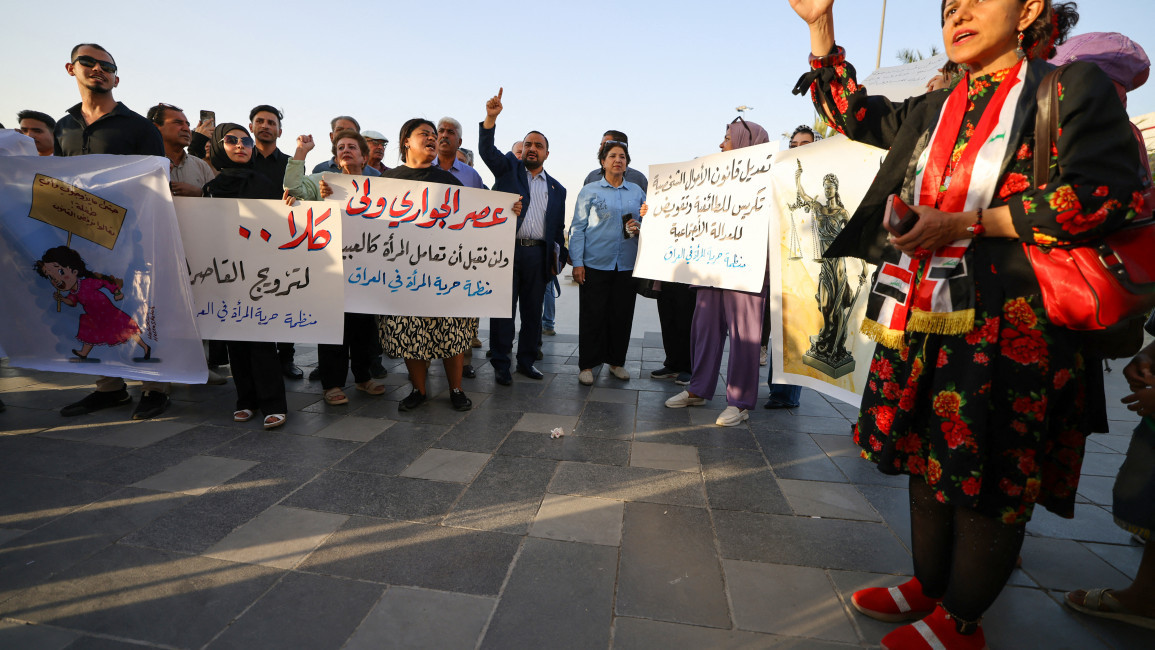Iraq's parliament postpones second reading of controversial amendments to Personal Status Law
The Iraqi parliament postponed a controversial bill on Tuesday to amend the country's Personal Status Law after civil society groups urged lawmakers to withdraw and break the quorum.
The proposed amendments to Personal Status Law No. 188 of 1959 have sparked significant concern. They could effectively legalise child marriage and increase religious authorities' control over family law, raising fears about a rollback of women's and children's rights.
The parliament was set for a second reading of the bill, but the session was postponed until further notice, according to a late announcement from the parliament's media office.
The amendments have ignited heated debate among lawmakers, activists, and the public. Opponents argue that the changes would undermine existing legal protections and pave the way for regressive social policies.
"Coalition 188, of which we are a part, is pushing to break the quorum in the Iraqi parliament and calling on lawmakers opposing the bill to withdraw from the session," Amal Kabashi, Executive Director of the Iraqi Women Network, told The New Arab on Tuesday.
Kabashi also noted that the coalition has started a campaign to collect signatures from MPs to retract the bill. She anticipates that the parliament might struggle to reach the quorum required for the session, emphasising that more time is needed for a broader debate on the bill.
"This law is crucial; it regulates individuals' lives and the entire society," she said.
On Monday, the Parliamentary Legal Committee, led by MP Rebwar Hadi, met with Coalition 188 to discuss their concerns. The coalition expressed fears about the amendments' impact on society and urged a reconsideration of certain provisions to align with citizens' rights and fundamental legal principles.
The Legal Committee stressed its commitment to reviewing all observations carefully and underscored the importance of further discussion. The committee aims to create a final version of the law that balances Islamic law with social changes and the diverse needs of Iraqi society.
The bill's proposed amendments have faced backlash for potentially deepening sectarian divisions and threatening constitutional rights. Despite these concerns, Shia blocs, with a majority in the parliament, are determined to push the bill through. Former Prime Minister Nouri al-Maliki and other Shia leaders support the amendments.
The US Ambassador to Iraq, Alina L. Romanowski, last month expressed concern over the changes, urging respect for both religious freedoms and women's rights. This statement provoked a strong reaction from Iraq's pro-Iran factions, with some leaders issuing threats against the ambassador.
Activists warn that the amendments could normalise child marriages and strip away protections for women, undermining civil court authority on matters of marriage, divorce, and custody. They argue that the bill violates Iraq's constitution and risks rolling back decades of progress on women's rights.
As protests continue and international pressure mounts, Iraq faces a critical decision that could reshape its legal and social landscape.







 Follow the Middle East's top stories in English at The New Arab on Google News
Follow the Middle East's top stories in English at The New Arab on Google News
![The new film casts Israeli actors to tell the story of Mary while leaving out Palestinians [Getty]](/sites/default/files/styles/image_330x185/public/2024-11/GettyImages-2172155541.jpg?h=199d8c1f&itok=wJWyXDEQ)
![Ben & Jerry's has taken Unilever to court for its alleged attempts to silence it [Getty]](/sites/default/files/styles/image_330x185/public/2024-11/GettyImages-2183900214.jpg?h=199d8c1f&itok=jEcYtQ64)
